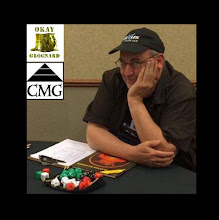The description from Board Game Geek is as follows:
Do you have what it takes to be a deep space colonist? An alien frontier awaits the brave and daring! This new planet will be harsh, but if you have the skills to manage your resources, build a fleet, research alien life, and settle colonies, the world can be yours.
Alien Frontiers is a game of resource management and planetary development for two to four players. During the game you will utilize orbital facilities and alien technology to build colony domes in strategic locations to control the newly discovered world.
The game board shows the planet, its moon, the stations in orbit around the planet, and the solar system’s star. The dice you are given at the start of the game represent the space ships in your fleet. You will assign these ships to the orbital facilities in order to earn resources, expand your fleet, and colonize the planet.
As the game progresses, you will place your colony tokens on the planet to represent the amount of control you have over each territory. Those territories exert influence over specific orbital facilities and, if you control a territory, you are able to utilize that sway to your advantage.
The planet was once the home of an alien race and they left behind a wondrous artifact in orbit. Using your fleet to explore the artifact, you will discover amazing alien technologies that you can use to advance your cause.
Winning the game will require careful consideration as you assign your fleet, integrate the alien technology and territory influences into your expansion plans, and block your opponents from building colonies of their own. Do you have what it takes to conquer an alien frontier?
Roll and place your dice to gain advantages over your opponent and block them out of useful areas of the board. Use Alien Tech cards to manipulate your dice rolls and territory bonuses to break the rules. Steal resources, overtake territories, and do whatever it takes to get your colonies on the map first! Don't dream it'll be easy, though, because the other players will be trying to do the same thing.
What I feel was noted when experienced players play the basic game on its own is the importance of the midgame and a need to keep all players in check lest one see find an inexorable path into the end game with an advantage. Mind you, it will happen anyway, but that player will need to be more subtle setting it up, something I hadn't been aware was possible because the basic game is seemingly as transparent as any game could be. There is no hidden player knowledge except for whatever strategy they have in mind. If you have the game, even with expansions, try the basic game again with fresh eyes.
Essentially, a clearinghouse for topics on MFWARS.com
not covered elsewhere or wanting a particular focus.
Please Like, Share, Plus, Tweet, Follow, and Comment!





















































